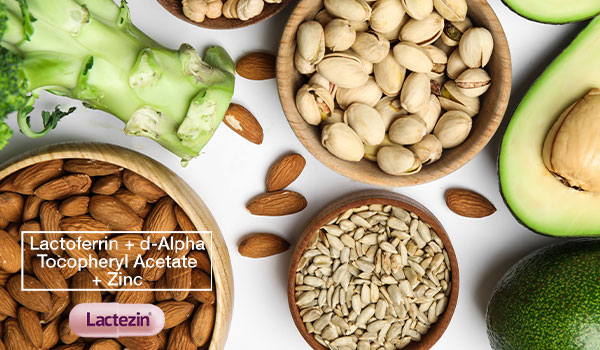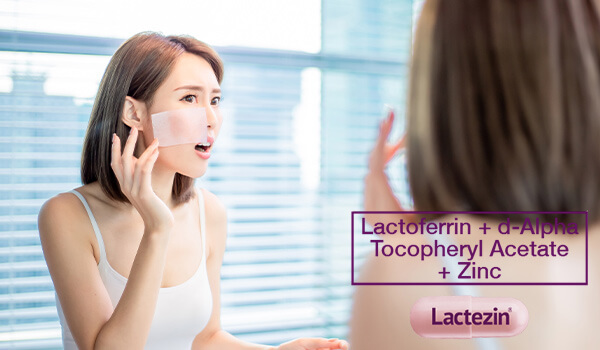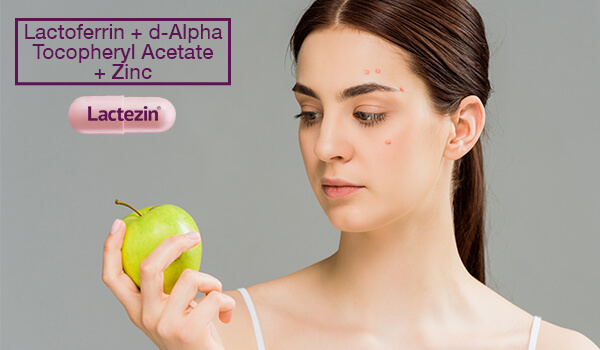The 5 Amazing Skin and Immunity Benefits of Vitamin E

Does vitamin E darken the skin? Does it help with acne scars? Despite being a nutrient that you read and hear in food and supplement ads, there are many questions on what vitamin E can do for you. It may come off as a surprise but the common nutrient does more than take care of your skin. Read on to learn about vitamin E, and its benefits for the skin, immunity and overall health.
Vitamin E: A Powerhouse Antioxidant
While the name may sound singular, it’s a collective term for eight different compounds classified into tocopherols and tocotrienols. Of these compounds, alpha-tocopherol is the only one that meets the human vitamin E requirement. When you check the ingredient list of one of your skincare products and you find alpha-tocopherol or tocopherol listed on it, that would be vitamin E.
Vitamin E is classified as an antioxidant. And it’s a powerful one too, given its benefits not just for skin, but for the whole body. But before we dive into its effects, here’s a short refresher on the importance of antioxidants.
Antioxidants fight free radicals. These are toxic compounds that may cause damage and breakage in cell membranes, leading to weakened organs, nonoptimal internal processes, and even the onset of ill conditions such as heart disease and cancer. Several lifestyle, stress and environmental factors are known to boost the production of free radicals. This includes:
- Air pollution
- Unhealthy diet
- Cigarette smoke
- Drinking alcohol
- Prolonged exposure to the sun
- Bacterial, fungal, or viral infections
- Intense and prolonged exercise, which can cause tissue damage
- Too much or too little oxygen in your body
Think rust on a bike or a car. This would be an accurate visual of how oxidative stress (too much free radicals) affects your overall health. And vitamin E as an antioxidant prevents and counters this by protecting and repairing at the cellular level.
What Vitamin E Can Do For You
As previously mentioned, vitamin E has effects that not only benefit the skin. Here are a few of what the nutrient offers for overall health.
-
Optimizes the Body’s Immune System
The body needs vitamin E to help keep the immune system strong and quick on response against invading viruses and bacteria. It is a key player in the production of red blood cells, and assists in the usage of vitamin K which is also an essential nutrient for immune and inflammatory responses. Studies also confirm that cells use vitamin E to interact with each other, and interactions between immune cells are critical in the regulation of immune function. -
Supports Muscle Repair
Vitamin E for strengthening muscles? Remember that we build muscle by consistently tearing and repairing it. In this no pain, no gain approach, the muscles have to repair itself from the stretch and the stress. This is where vitamin E helps, as it helps preserve the integrity of tissues while encouraging cell renewal. -
Promotes Good Brain Function As You Age
As you age, the brain becomes more and more susceptible to oxidative stress and the damaging effects of free radicals. Although further research is needed, vitamin E is thought to prevent or delay cognitive delay thanks to its antioxidant properties. It has also been studied that vitamin E helps reduce the risk of developing Alzheimer’s Disease. -
Helps Minimize Anxiety
In multiple studies, it’s been found that low levels of vitamin E induces anxiety-related behavior. Although outcomes have been inconsistent and more research is needed on the matter. -
Protects and Nourishes Skin
Vitamin E looks after the cells that look after your skin. The nutrient also helps regulate collagen to keep skin supple and to help minimize the appearance of fine lines, wrinkles, and other signs of premature aging. To the initial queries on this read, no, vitamin E does not darken the skin. On the contrary, vitamin E helps lighten dark spots and scars with its cell-renewing effect.the nutrient also assists in cellular restoration and photo protection. This means that with enough supply of vitamin E, damaged skin cells are nursed back to health, keeping the skin’s barrier intact to seal moisture in, and to keep harmful UV light and infections out.
Regular intake of vitamin E helps your body function at its best. Fat-soluble, this essential nutrient occurs naturally in dietary sources including vegetable oils, green leafy vegetables such as spinach, eggs and nuts.
How Vitamin E Helps with Pimples
Vitamin E can also be a useful ingredient for managing acne. By helping the skin stay moisturized, it keeps the skin’s sebaceous glands from going into overdrive in its production of sebum. The ingredient is also studied to have anti-inflammatory properties that helps with controlling inflammatory acne.
An over-the-counter anti-acne drug, Lactezin combines the powerful benefits of vitamin E with the antibacterial properties of lactoferrin and the oil-regulating effects of zinc. With regular use, Lactezin helps clear pimples in as early as 2 weeks.
Discover more about vitamin E, lactoferrin, zinc and other essential skin care nutrients. Get your acne questions answered with expert pimple care tips and advice, only from Lactezin.
SOURCES:
https://www.healthline.com/health/all-about-vitamin-e#extra-vitamin-e
https://www.healthline.com/nutrition/antioxidants-explained
https://www.sciencedaily.com/releases/2015/05/150519132635.htm
https://www.ncbi.nlm.nih.gov/pmc/articles/PMC4276978/
https://www.healthline.com/health/vitamin-e-for-skin#the-takeaway
https://www.allure.com/story/vitamin-e-skin-care
https://www.ncbi.nlm.nih.gov/pmc/articles/PMC3997530/
https://mentalhealthfood.net/vitamin-e-is-a-stress-buster-among-other-things/


